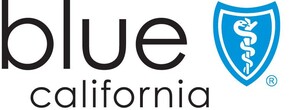New Poll Finds Nearly 3 in 4 California Teens Are Concerned About Contracting COVID-19 at School as Students Return to Campus This Fall
Blue Shield of California's statewide survey finds youth are struggling to cope with the impacts of COVID-19 on their mental health; also worried about academic achievement and socializing with friends
More than half of BIPOC (Black, Indigenous, and People of Color) teens concerned about coping with racial justice issues when returning to school
OAKLAND, Calif., Aug. 19, 2021 /PRNewswire/ -- As students begin a new school year back on campus, almost 3 in 4 teens in California (71%) said they are concerned about catching COVID-19 at school, according to a new statewide survey released today by Blue Shield of California.
Worries about academic achievement (79%) and socializing with friends (59%) are also among the top concerns for California teens.
The survey conducted July 26 - August 5, 2021, asked 500 middle- and high-school students in California (ages 13-18) to reflect on their mental health before and throughout the COVID-19 pandemic as they head back to the classroom. The poll is part of Blue Shield's BlueSky initiative, the nonprofit health plan's multi-year effort to support youth mental health including online and on-campus mental health services and supporting educator training on student mental health.
One bright spot in the report is that students say they are speaking up about their concerns and discussing their mental health with others, demonstrating important help-seeking behavior.
"This back-to-school time will require an acute focus from parents, educators and caring adults on both the academic and social success of teens," said David Bond, LCSW, director of Behavioral Health for Blue Shield of California. "The constant uncertainty and intangible impacts of the COVID-19 pandemic will persist – and being there to support the well-being of our youth is critical."
Pandemic takes a toll on mental health – and youth are talking about It
Teens surveyed were asked to gauge their mental health at different points in time – before the COVID-19 pandemic, during its height (March 2020 – June 2021), and since the state reopened on June 15. Sixty-three percent said they were in excellent or good mental health before the pandemic. That number dropped to 46% between March 2020 and June 2021, while COVID restrictions were also in effect, and has slightly rebounded since they were lifted in June (54%).
The good news is young people are reaching out and discussing their mental health:
- 54% talked about their mental health with a friend
- 46% spoke with a parent or guardian
- 20% discussed with a teacher
- 18% turned to a professional counselor or therapist
"This data speaks to the importance of mental health training for everyone – not just professional therapists and behavioral health providers," Bond said. "In our BlueSky initiative, we've seen tremendous success when we train a spectrum of individuals – including teens, educators, parents and caring adults – on how to spot warning signs and provide care. The more we can all learn to listen and respond to each other with empathy and understanding, the more we can promote better outcomes for our youth."
Impact among communities of color
There were notable responses from BIPOC youth. The survey found:
- 53% of BIPOC teens are concerned about coping with racial justice issues when returning to school.
- BIPOC teens were less likely to discuss their mental health with their parents than white teens (36% versus 59%). Both groups had similar results about discussing mental health with their friends (55% versus 51%).
Supporting youth mental health at school
To be successful, teens report they are looking for more teacher support with schoolwork, flexibility to learn, and support for mental health. Even among students who said their schools offered mental health support, 22% of those respondents think they could be more helpful.
"During these unprecedented times, parents, teachers and other caring adults can help make this transition as easy as possible for teens by maintaining an open dialogue," said Jennifer Christian-Herman, Ph.D., executive director of Behavioral Health at Blue Shield of California. "Carve out time to check-in and encourage children and teens in your life to have those conversations about how they are feeling returning to school."
To see additional survey results plus tips and resources to help teens navigate back-to-school challenges, visit bluesky.blueshieldca.com.
Download the report here.
About Blue Shield of California
Blue Shield of California strives to create a healthcare system worthy of its family and friends that is sustainably affordable. Blue Shield of California is a tax paying, nonprofit, independent member of the Blue Shield Association with over 4.5 million members, over 7,500 employees and more than $21 billion in annual revenue. Founded in 1939 in San Francisco and now headquartered in Oakland, Blue Shield of California and its affiliates provide health, dental, vision, Medicaid, and Medicare healthcare service plans in California. The company has contributed more than $150 million to Blue Shield of California Foundation in the last four years to have an impact on California communities.
For more news about Blue Shield of California, please visit news.blueshieldca.com.
Or follow us on LinkedIn, Twitter, or Facebook.
BlueSky Back-to-School Methodology
Blue Shield of California commissioned Quest Mindshare to conduct a survey of a total of 500 returning middle-school and high-school students in California (ages 13-18). The results are weighted to be representative of all California teens. The survey was fielded July 26 - August 5, 2021.
CONTACT: |
Mark Seelig |
Blue Shield of California |
|
510-607-2359 |
|
SOURCE Blue Shield of California

Related Links
WANT YOUR COMPANY'S NEWS FEATURED ON PRNEWSWIRE.COM?
Newsrooms &
Influencers
Digital Media
Outlets
Journalists
Opted In





Share this article